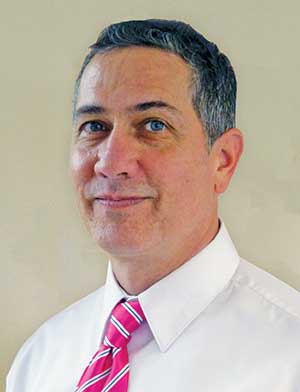 From access to cost, delivery and effectiveness, much attention is being paid to healthcare reform in the United States as a result of the Affordable Care Act. “I think everyone recognizes that as a nation we cannot keep going with a higher and higher percentage of gross domestic product being allocated towards healthcare,” says Jeff Harness ’91 MPH, director of community health and government relations at Cooley Dickinson Health Care in Northampton, MA.
From access to cost, delivery and effectiveness, much attention is being paid to healthcare reform in the United States as a result of the Affordable Care Act. “I think everyone recognizes that as a nation we cannot keep going with a higher and higher percentage of gross domestic product being allocated towards healthcare,” says Jeff Harness ’91 MPH, director of community health and government relations at Cooley Dickinson Health Care in Northampton, MA.
“In my opinion, we built the wrong health care system” notes Harness. “We built a structure where we only get paid when something bad happens to someone, so there is no financial incentive to focus on prevention.” According to the annual report produced by healthcare think tank The Commonwealth Fund, the United States has the most expensive, least effective health care system in the world.
But change and innovation in healthcare are underway. “Hospitals are likely to have a smaller footprint in the future if we can get a handle on preventive care,” Harness suggests.
Cooley Dickinson Health Care has implemented the Integrated Care Management Program (ICMP) based on a model created at Massachusetts General Hospital. ICMP is a team-based approach that allows staff to identify and manage health risks in an effort to avoid costly hospitalization. The approach places the patient in the middle of different caregivers who can share information and electronic medical records in a way that was not previously possible.
Community health initiatives are also a vital part of the reform equation; bringing local agencies and residents together to proactively facilitate change for better health. “We start with data and hard numbers but we also recognize that there are people behind those numbers,” says Harness. “And so we conduct focus groups, surveys or public forums to really understand, at a grass-roots level, what people are telling us about their daily experience and what change is needed in their community. Our job is then to share those findings, provide some initial funding and support, and allow the community to take it from there.”
In one instance, higher than expected incidents of death from cancer and heart disease were attributed to a culture of smoking in a local community. With grant funding, trainings were held for landlords on smoke-free housing policies and changes were made to the physical makeup of a park where young people were smoking before school. Over time and working hand in hand with other healthcare initiatives, these types of community health projects support healthy habits for individuals and communities.
A longtime community health leader, Harness received his master’s degree in public health from UMass Amherst. Prior to his current role, he was the director of integrated care and population health at Cooley Dickinson Hospital and served as the director of the Western Massachusetts Center for Healthy Communities.
In 2013, the UMass Amherst School of Public Health and Health Sciences awarded Harness its Distinguished Service Award. In addition, he received a citation from Massachusetts Governor Deval Patrick for his contributions to the Commonwealth.
“It’s an exciting time to be in the healthcare field,” says Harness. “There are always new projects and new things to learn and I truly enjoy working with people who are passionate about making a difference.”